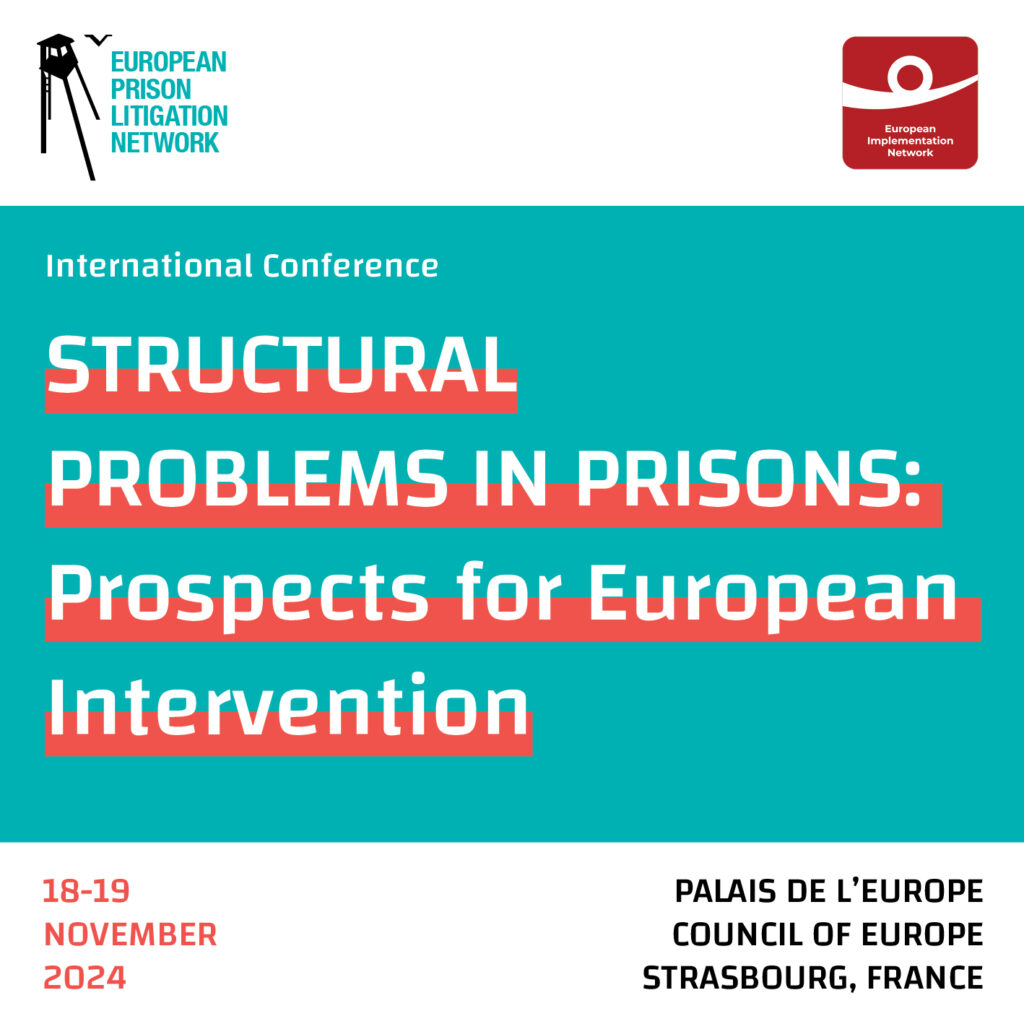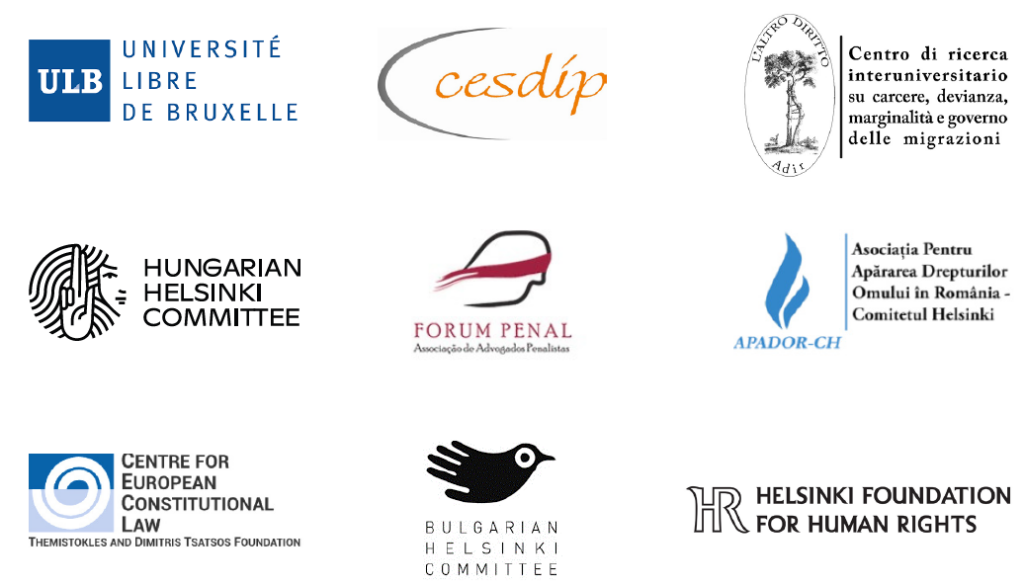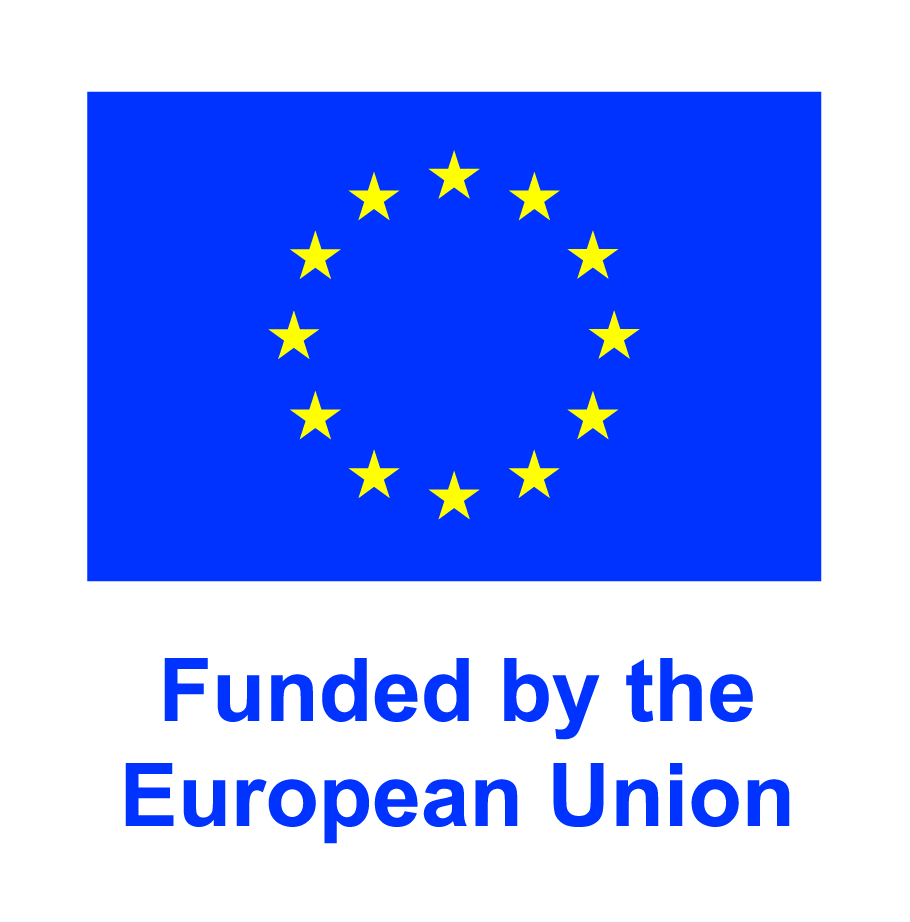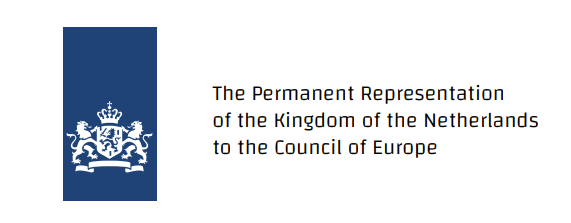CONTENTS >> RATIONALE / PROGRAMME & PRESENTATIONS / PARTNERS, SPONSOR & FUNDING

RATIONALE
Since the early 2000s, increased intervention by Council of Europe (CoE) bodies has led to the definition of a legal status for prisoners, increasingly precise obligations for states to guarantee their fundamental rights, and guidance on prison and penal policy. Similarly, since 2016, the Court of Justice of the European Union (EU) has considered systemic deficiencies in prison conditions as an obstacle to judicial cooperation between EU member states.
Yet European prison systems continue to suffer from structural problems: prison overcrowding remains acute in more than a quarter of CoE countries, and the average European incarceration rate rose in 2023 for the first time in a decade.
Based on these observations, the European Prison Litigation Network and its partners have conducted a study in nine countries (Belgium, Bulgaria, France, Greece, Hungary, Italy, Poland, Portugal and Romania) to assess the effectiveness of European interventions in addressing systemic problems in prison systems.
- What penological model emerges from the judgements of the European Court of Human Rights and the guidance provided by other bodies of the Council of Europe to Member States?
- What is the impact of European intervention on national penal and prison policies?
- Could greater synergies between the CoE and the EU offer stronger levers of reform at national level to tackle structural problems in prisons?
- Will the control that the EU intends to exercise over prison and judicial reform in EU candidate countries such as Ukraine or Moldova strengthen the Union’s demands for Member States overall in the long term?
This conference brings together representatives of European and national institutions involved in penal and prison policy, academics, and representatives of civil society to discuss the key challenges for tackling structural problems in prisons and for the effective implementation of the European Convention on Human Rights and the EU Charter of Fundamental Rights in European prisons.
PRogamme
Read our analysis of the Committee of Ministers’ recommendation on structural prison overcrowding >>
OPENING
Tanja Gonggrijp, Permanent Representative of the Kingdom of the Netherlands to the Council of Europe
Marc Nève, President of the European Prison Litigation Network, President of the CCSP (Belgian NPM for Prisons), former Vice-President of the CPT
Ioulietta Bisiouli, Director of the European Implementation Network
PANEL 1 – MEANING AND SCOPE OF STRUCTURAL OR SYSTEMIC PROBLEMS IN PRISON MATTERs
Chair – Sofia Ciuffoletti, Researcher, Inter University Centre ADIR – University of Florence, General Secretary of EPLN
Julien Attuil-Kayser, Head of the Transversal Division of the CPT
The CPT’s approach to structural prison problems
Natalia Brady, Lawyer in the Directorate of Jurisconsult in the Registry of the ECtHR.
The Court’s consideration of systemic problems in the prison system > Case law references
Pavlo Pushkar, Head of Division, Department for the Execution of judgments of the ECtHR
Articulations of functions between the ECtHR and the Committee of Ministers on prison matters
Julia Burchett, Post-Doctoral Researcher at the Université Libre de Bruxelles, co-author of the report “Prisons and detention conditions in the EU” commissioned by the LIBE Committee at the European Parliament
The EU’s commitment to prison issues: what prospects?
PANEL 2 – THE RESPONSES PROMOTED IN THE CRIMINAL FIELD
Chair – Simon Creighton, Judge in the First Tier Tribunal, Solicitor, Vice-President of EPLN
Annie Kensey, Centre de recherches sociologiques sur le droit et les institutions pénales (CESDIP)
Changes in prison demographics in Europe, the state of knowledge
Sonja Snacken, Emer. Professor, Vrije Universiteit Brussel
Structural problems in prisons: Fostering solutions
Vassilis Tzevelekos, Reader in law (Associate Professor) University of Liverpool, Member of the CPT
Any Room for Flexibility in Minimum Standards of Protection in Prisons?
PANEL 3 – SYNERGIES BETWEEN INTERNATIONAL ORGANISATIONS TO RESOLVE STRUCTURAL ISSUES
IN PRISON
Chair – Aimée Comrie, Chief of the Crime Prevention and Criminal Justice Section, UNODC, United Nations
Martin Mühleck, Team Leader at the Ukraine Service, DG NEAR, European Commission
The consideration of penal and prison issues in the EU accession process
Oleksandr Fedoruk, Deputy Head of the Department for Supervision of Law Enforcement in the Execution of Criminal Sentences and Probation, General Prosecutor’s Office of Ukraine
Structural problems of the Ukrainian prison system: challenges and opportunities of the EU accession process. The point of view of the authorities
Oleh Tsvilyi, Head of Protection for Prisoners of Ukraine, Member of the Public Council for the Ministry of Justice, Board member of EPLN, former prisoner
Structural problems of the Ukrainian prison system: challenges and opportunities of the EU accession process. The point of view of the civil society
Nicoleta Hriplivii, Co-founder and lawyer at PromoLEX Association, Board member of EPLN
Prison reforms in the context of EU accession. The case of the Republic of Moldova > Presentation / Notes
PANEL 4 – THE IMPACT OF EUROPEAN INTERVENTIONS ON PENAL POLICIES: NATIONAL PERSPECTIVES (Part I)
Chair – Benoit David, lawyer, Board member of EPLN and Observatoire international des prisons, Member of the Paris Bar Council
Georgiana Gheorghe, Executive Director of APADOR-CH
The response to the “Article 46” judgments against Romania
Sofia Ciuffoletti, Researcher, Inter University Centre ADIR – University of Florence, General Secretary
of EPLN & Simon Creighton, Judge in the First Tier Tribunal, Solicitor, Vice-President of EPLN
The policy to combat prison overcrowding in the United Kingdom
Xabier Etxebarria Zarrabeitia, Professor, Universidad Complutense de Madrid, Board member of EPLN
European responses to the problem of prisoners with mental health disorders. The case of Spain
PANEL 5 – THE IMPACT OF EUROPEAN INTERVENTIONS ON PENAL POLICIES: NATIONAL PERSPECTIVES (Part II)
Chair – Pascal Montfort, Judge at the French Supreme Court, Board member of EPLN
Emilio Santoro, Professor, University of Florence, member of l’Altro Diritto
The Italian example, or the limits of the procedural approach to problem-solving
Inês Horta Pinto, Researcher at the University of Coimbra, Institute for Legal Research
The Portuguese case and the problem of long periods of detention
Tetyana Panasenko, Lawyer in Lviv, Ukraine, and Volodymyr Panasenko, former life prisoner
The systemic problem of the detention of lifers in Ukraine
PANEL 6 – EUROPEAN INTERVENTION ON STRUCTURAL PRISON ISSUES RELATING TO PRISON POLICIES
Chair – Krešimir Kamber, Senior Legal Adviser, Directorate of the Jurisconsult – Office of the President/Office of the Registrar of the European Court of Human Rights
Kateřina Šimáčková, ECtHR Judge
Protecting the dignity of prisoners from the effects of the informal prisoner hierarchy
Zsófia Moldova, Director of the Justice Programme at the Hungarian Helsinki Committee, Board member of EPLN
The contrasting response to the judgments on family visits and those on the regime for life sentenced prisoners in Hungary
Krassimir Kanev, Founding member of the Bulgarian Helsinki Committee, Vice-president of EPLN, Board member of EIN
European Apprehension of the Statutory Voting Ban for Serving Prisoners in Bulgaria
PANEL 7 – PROSPECTS FOR A EUROPEAN INTERVENTION ON THE ROOTS OF STRUCTURAL Prison issues
Chair – Krassimir Kanev, Founding member of the Bulgarian Helsinki Committee, Vice-president of EPLN, Board member of EIN
Mykola Gnatovskyy, ECtHR Judge, Former President of the CPT
The persistent problems of prisons: how can the European Court of Human Rights contribute to finding lasting solutions?
Maciej Nowicki, Chair of the EIN, President of the Helsinki Foundation for Human Rights
Prison structural problems and rule of law backsliding
Gilberto Felici, ECtHR Judge
The European Court and National Criminal Policies: A Position Open to Evolution?
CLOSING STATEMENTS
Hugues de Suremain, Legal Director of the European Prison Litigation Network
Ioulietta Bisiouli, Director of the European Implementation Network
In partnership with

Funded by


With the support of

This event is funded by the European Union and the Robert Carr Fund, and sponsored by the Permanent Representation of the Kingdom of the Netherlands to the Council of Europe. Views and opinions expressed are however those of the organisers and speakers only and do not necessarily reflect those of the European Union, the Robert Carr Fund or the Permanent Representation of the Kingdom of the Netherlands to the Council of Europe. Neither the European Union, the Robert Carr Fund, nor the Permanent Representation of the Kingdom of the Netherlands to the Council of Europe can be held responsible for them.
